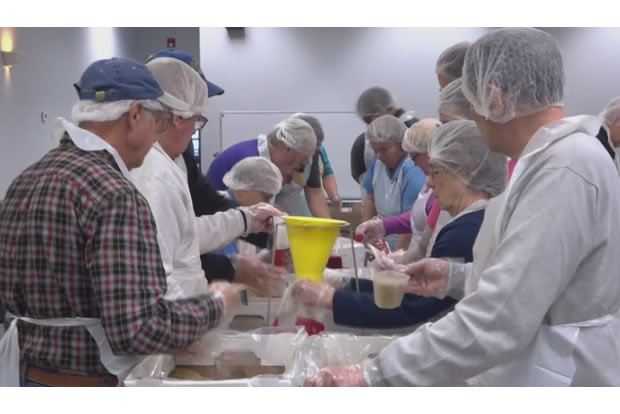After the UK launched a large-scale COVID-19 vaccination program, 17.6 million people have so far received at least the first dose of the vaccine, accounting for about a quarter of the country’s population. As the infection and death curve is showing a downward trend, on the 22nd, British Prime Minister Johnson officially announced the road map for unblocking England, and plans to gradually relax epidemic prevention measures starting in March.
According to Johnson’s unblocking plan, the school will be the first to unblock it. All schools in England will resume classes on March 8th, which will improve the safety of teachers and students twice a week, and the public will have limited outdoor social activities.
Johnson described that the epidemic has affected school children’s academic and physical and mental health, and resuming classes is the first step to return to a normal life. Although some teachers’ unions think that the government’s approval of the full resumption of classes is too reckless, the decision has been supported by members of the Labour Party who have always opposed the resumption of classes. Vaccine Minister Zahavi also emphasized that resuming classes is a safe decision under large-scale virus testing.
In Scotland, local kindergarten and primary one to three students returned to school on the 22nd. Schools need to arrange for students to wash their hands regularly, open windows for ventilation, and keep a distance of 2 meters between adults and between adults and children.
At the same time as classes resume, the authorities will relax restrictions on indoor visits in nursing homes, allowing one designated relative or friend to visit residents, and at the same time relax the outdoor gathering restrictions, allowing two people from different families to gather.
From March 29, the outdoor gathering limit will be relaxed to 6 people, and outdoor sports venues will be allowed to reopen. As for non-essential stores, they will be unblocked in April, bars and restaurants will be able to resume dining in May, and the six-person indoor gathering order will be relaxed in June. The goal is to resume normal life in July.
As one of the countries hardest hit by the new crown epidemic, more than 4.1 million people in the UK have been infected and 120,000 have died.
Since the beginning of January, the number of new confirmed cases and the number of deaths in the country have continued to decline. Some epidemiologists pointed out that in the past six weeks, the infection rate in the UK has dropped significantly; the number of new infections in the last seven days has fallen by more than 10% compared with the previous seven days, and the number of deaths has fallen by 27%.
Analysis believes that the “combined punch” of closing the city and adding vaccine has a significant effect on curbing the epidemic.
However, whether the lockdown should be lifted at present, many parties still hold their own opinions. The British Medical Association believes that only when the number of infected people drops below 1,000 per day can the restrictions be relaxed significantly. In the past seven days, the average number of new diagnoses in the UK every day exceeded 10,000.
In addition, schools in England are about to resume classes, and whether children should be vaccinated is also controversial. British Health Secretary Hancock said that many parties are conducting trials to assess the safety and effectiveness of the new crown vaccine for younger people. The University of Oxford and AstraZeneca have announced the opening of clinical trials of the vaccine for children aged 6 to 17.
Edmonds, a key member of the British Emergency Scientific Advisory Group (SAGE), emphasized that the new crown epidemic “still has a major risk of re-epidemic before everyone in the country, including children, is vaccinated.” It will take several months for Britain to vaccinate the entire population.
[Unblock with caution, all stages must meet the “four major conditions”]
The United Kingdom has entered its third lockdown since the beginning of January. The Johnson government has been criticized for slowing epidemic prevention operations and premature relaxation of restrictions, which caused the epidemic to rebound.
This time Johnson promised to learn from the lesson. In order to prevent the unblocking pace from being too fast, Johnson proposed that the “four major conditions” must be met before each stage of unblocking. They are whether the progress of the vaccination plan is as expected by the government and whether the vaccine is effectively reduced. Severe cases and deaths, whether the level of infection rate will cause the medical system to collapse, and whether the emergence of new variant viruses will make the epidemic worse.
According to reports, the authorities have anticipated that after the school resumes, the confirmed cases and the infection rate may rise, but they believe that the most important thing is whether the number of severely ill patients will increase significantly and whether the medical system can bear it by then. , The authorities will not necessarily stop unblocking because of this.
However, many Conservative Party members criticized that Johnson’s road map for unblocking the ban was too conservative and believed that the ban should be completely unblocked as soon as possible. Some members pointed out that according to the current vaccination plan, people under the age of 50 should be vaccinated before mid-April. There is no reason why the authorities will not fully unblock it before the end of April.















+ There are no comments
Add yours